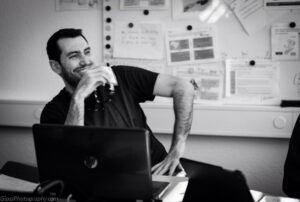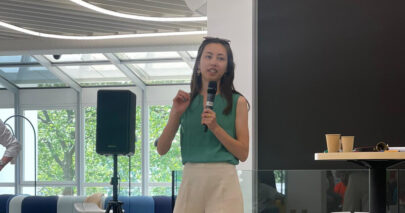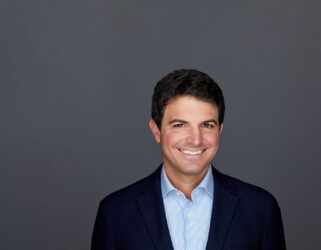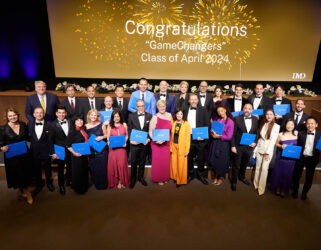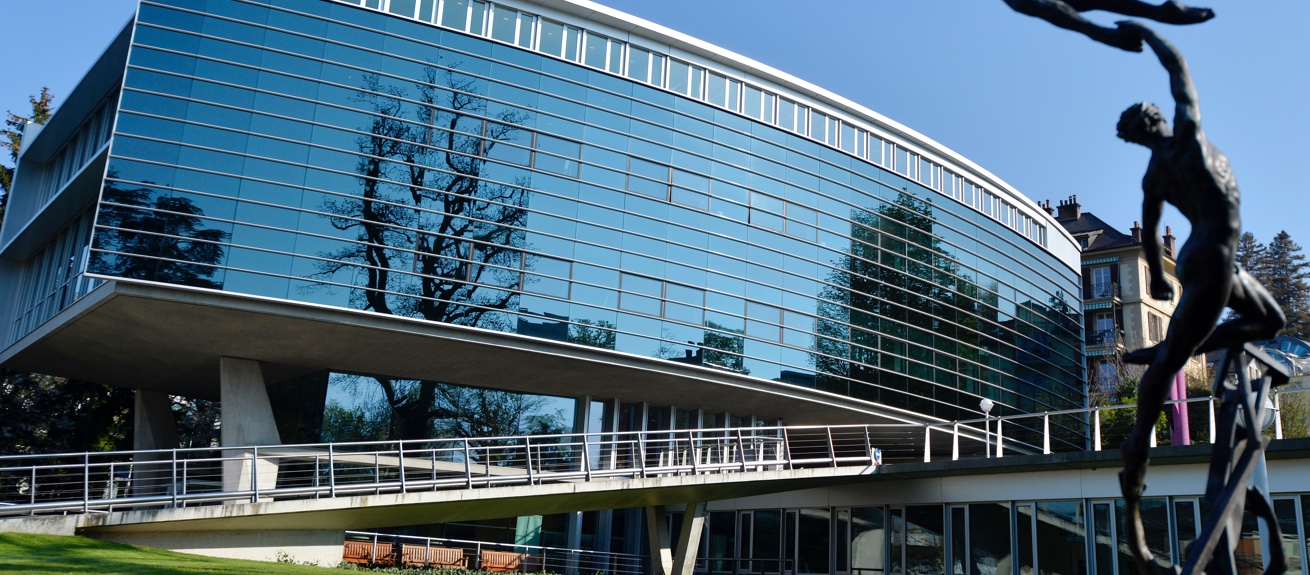
Diego Carneiro Barreto has the confident delivery of a person who knows that he is well prepared. Addressing the MBA class of 2015, he described how IMD helped him rise to the challenge of a very complex situation.
When Barreto started his 2014 IMD MBA, he was Global head of corporate finance and IR with his employer of four years, but after he graduated from IMD, he was catapulted into the strategy of the group as Head of corporate development. Barreto had acquired invaluable management skills at IMD, but nevertheless this was not the ordinary promotion of a gifted young man.
From finance to financial strategy
During his year in Lausanne, the company that employed him, engineering and construction conglomerate Grupo OAS – the third largest in Brazil with $4.0 billion in gross revenue – was identified as one of the 23 firms that had taken part in an alleged kickback and bribe scandal surrounding the state-controlled oil company Petroleo Brasileiro SA, or Petrobras, accusations that the company vehemently denies.
With halted payments and a smaller order book, the company missed a bond payment and could no longer face its local debt, which was in excess of $1 billion. In December 2014, Diego Barreto was appointed to help put the company back onto its financial course. During a presentation to the 2015 IMD MBA class, he evoked the plan that should reintroduce growth by 2017, but not without first filing for bankruptcy protection (this occurred on 31 March 2015) and then whittling OAS back to its construction basics.
IMD’s “holistic approach to business”
Diego Barreto had entered the IMD program with the ideal profile. He was 31 years old, but with several years of business experience at top level. He had trained as a lawyer before moving into finance and was now looking to broaden his horizons even further within a diverse group of participants of the highest caliber.
Barreto said that he chose IMD for its “holistic approach to business”. Over a two-week trip he had combed the US in search of a business school that could offer him what he was looking for and realized that “there was always something left off the table”.
He admits however that he arrived in Lausanne convinced that he already knew it all, with a degree of self-confidence that bordered on arrogance. One of the greatest lessons he learned at IMD, he said, was to be humble and accept that we may only know 5% of what we think we know.
Complexity as a reality
IMD program director, Ralf Boscheck, knew that by inviting Barreto at a crucial time in the remaking of OAS, he would be able to offer insight on how to cope with complexity. Although he faced an unprecedented situation with no benchmarks and was only a few months into the job, Barreto already had valuable observations to share.
As a lawyer, he has always found it natural to engage in discussion and he welcomes opposing opinions. But to build a decision, Barreto said that going to people with a similar mindset avoids confusion. “That does not mean that you need to share the same opinions, because you need diversity, but with experience, you learn to chose the right people.”
He qualified himself as rational and said that he looked for business partners who, like him, leave emotions out of the picture. Barreto says that he owes a lot to his sharp-thinking father, who would take him to business meetings when he was only 12 years old and then ask him “What did you understand?”.
Pressed to be more explicit on the success to date of his decisional processes, Barreto admits that he is “a rational person who believes in his intuition”. When he targets business decisions, he knows that there is a human component that cannot be neglected. The recent course of events at OAS has led him to appreciate the importance of adapting potent arguments to each of the different stakeholders in order to allow the negotiations to advance. “This is about behavior,” he says.
“Be humble, pay attention and reflect,” he told the 2015 class. “Professors are there, books are there, and your colleagues are there. Make the best use of this year, it’s an invaluable investment.” To sustain his energy levels and resist the phenomenal demands of his job, he runs, has a passion for football, sleeps very little, drinks no alcohol and most importantly, has a two year-old son.
Learning from experience
After the session, one of the participants, Elizaveta Denisova, who had faced a similar situation in her native Russia, explained that Barreto had given her an opportunity to reassess her own decisions: “My approach needs to be more complex,” she realized. To be kept onboard, stakeholders must receive the information in different ways, she acknowledged.
Georg Schroeder, another MBA 2015, observed how leaders need to find the right balance when facing difficult situations and still convey a message of confidence. He pointed out that what he saw as the strength of Barreto’s presentation was the evidence of his guiding core values.
“Being in touch with your own moral compass helps to navigate dilemmas,” summarized Ralf Boscheck.
“It’s all about why and how you act,” Barreto reminded the class of 2015.
More about the IMD MBA Program.
